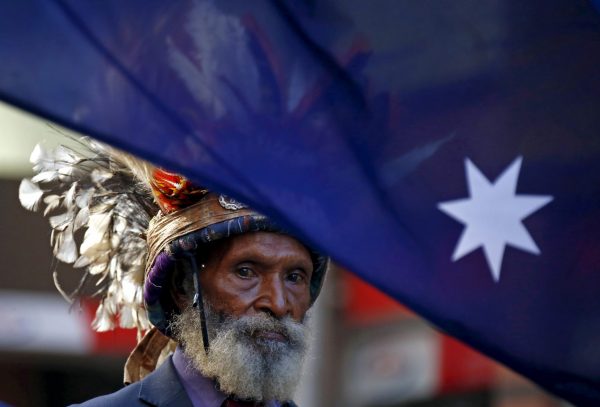The Pacific islands region was identified as a priority in the Australian government’s 2017 Foreign Policy White Paper. While this included some potentially helpful foreign policy initiatives, defence has largely been overlooked in discussions about how Australia can enhance its engagement with the region. Three recent reports have brought the Defence Cooperation Program to the foreground of these discussions.
In early September 2018 it was reported that Australia had outbid China to fund the upgrade of Fiji’s Blackrock Peacekeeping and Humanitarian Assistance and Disaster Relief Camp. Australia will develop infrastructure and provide personnel to undertake training at the base, which Fiji intends will become a centre for training and the development of the region’s peacekeeping, humanitarian assistance and disaster response capabilities.
Regardless of whether Australia’s investment in the Blackrock base was motivated by Chinese interest, if this investment enhances coordination and interoperability between the Australian Defence Force (ADF) and regional military forces for humanitarian and disaster relief, it will be a positive development for Australia’s relationships in the region.
The investment also represents a positive development for relations between the ADF and the Republic of Fiji Military Forces (RFMF) after years of sanctions following the 2006 Fiji military coup. During that period significant opportunities to build relationships between ADF and RFMF officers were lost, and China stepped into the breach by providing training and equipment.
Fiji continues to maintain links with China and questions remain over the RFMF’s commitment to democracy and human rights protections. Australia is taking a pragmatic approach and is working hard to rebuild the relationship through measures like the establishment of the annual Australia–Fiji Defence Ministers’ meetings in 2017.
In early October 2018 it was reported that Australia is in talks with Papua New Guinea about developing a joint naval base on Manus Island. While these talks are reportedly in response to Chinese interest in developing a port on Manus and in three other locations in Papua New Guinea, Australia has long been keen to develop a naval base on Manus.
The United States established a naval base on Manus Island during the Pacific War in the 1940s. After the war, then Australian minister for external affairs HV Evatt unsuccessfully lobbied to turn it into a permanent joint Australia–United States base.
When Kim Beazley was defence minister in the 1980s he made steps to reopen the naval base, which he identified as a ‘choke point’ on a ‘critical strategic approach’ to Australia. Although Australia could not reach an agreement with Papua New Guinea, it did restore the wharf on Manus in the 1990s in the context of the Pacific Patrol Boat Program. A sticking point in negotiations was Papua New Guinea’s concerns about protecting its sovereignty. It remains unclear how these concerns will be addressed as part of the new plans.
News of the proposed naval base was accompanied by reports that the ADF may begin military rotations to Papua New Guinea, building on the small number of ADF personnel who are currently involved in training the Papua New Guinea Defence Force.
It remains to be seen how receptive Papua New Guinea’s government and public will be to ongoing ADF deployments. They may be viewed as impinging on Papua New Guinea’s sovereignty and bring back memories of the ADF’s role during the Australian colonial administration.
This would echo sensitivities over the deployment of ADF personnel during the Bougainville peace process in the 1990s. With the referendum on Bougainville’s political future scheduled for June 2019, there is the potential for similar sensitivities to resurface.
Despite these and other concerns about the Defence Cooperation Program, particularly regarding the management of its projects, it is an example of Australian assistance that is generally viewed positively in the region. The program is driven by a process of joint identification of the interests and ambitions of both recipient states and Australia.
A particularly well received aspect of the Defence Cooperation Program is the Pacific Patrol Boat Program. While the program has faced challenges in the past, these have been outweighed by its benefits, both to recipient states and Australia. Australia was right to build on the existing program with the Pacific Maritime Security Program, which will see new boats supplied to the region as well as a commitment to provide personnel and sustainment over 30 years.
Increasing Australia’s strategic engagement with the Pacific islands in response to Chinese interest in the region poses dangers, not least of which are creating self-fulfilling prophecies relating to the so-called ‘China threat’. But if Chinese interest motivates Australia to commit to partnerships and projects that meet both the region’s interests and its own, it could be that these risks are worth bearing for the time being.
Joanne Wallis is a Senior Lecturer at the Strategic and Defence Studies Centre, Coral Bell School of Asia Pacific Affairs, The Australian National University.


Why have you chosen to illustrate this piece with a photo of an Australia-Indonesia event? What a very odd editorial decision.